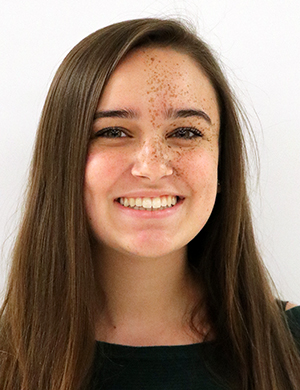The Problem With Blaming Mental Health For Mass Shootings
With the recent school shooting that occurred in Parkland, Florida on Valentine’s Day, many people are choosing to blame mental illness for the tragedy that took place. Aside from the fact that the real culprit is the guns and their wide accessibility, scapegoating depression and “loneliness” in order to ignore the large request for gun control is unacceptable. It causes a stigma that will regress the work that is being done to bring awareness to mental health, as well as giving a false impression to a very real issue.
The mass shooting that happened at Marjory Stoneman Douglas High School was committed by a 19-year-old ex-student, Nikolas Cruz, who supposedly suffered from depression, which was possibly related to the death of his mother this past November. 17 students and staff were murdered after Cruz pulled the fire alarm to send all occupants running outside of the classroom, and began spraying the crowds with an AR-15 he had purchased. However, this illness is not an excuse, nor a reason, for this crime to have been committed.
The fact of the matter is that not all mentally unstable people are violent, but that is the stigma that is created when people say mental illness is the cause for a mass shooting. It not only causes a negative feeling to be associated with mental illnesses, but it gives an excuse for people to carry out mass shootings and blame it on their depression or anxiety. Realistically, less than one percent of all annual gun-related homicides are committed by mentally ill people. Despite this, blaming mental illness for mass shootings is not a new practice and is becoming increasingly more acceptable.
The first mass shooting in the U.S., committed by Howard Unruh, occurred on September 5, 1949 in Camden, New Jersey and was the result of built up anger towards neighbors and those around him in society, and his quick access to firearms. He was diagnosed afterwards to have paranoid schizophrenia and never went to trial. By allowing a mental illness to become the documented motive, all future mass shooters are now free to claim this excuse.
“There have been notorious killers since America was founded, but you didn’t have the mass shooting phenomenon before Unruh’s time because people didn’t have access to semi-automatic weaponry,” said true-crime novelist Harold Schechter according to the Smithsonian’s website.
In Mass Shootings and Mental Illness by James L. Knoll IV and George D. Annas, common misconceptions of the relationship between the mentally ill and guns are addressed and corrected with evidence-based facts.
“Gun restriction laws focusing on people with mental illness perpetuate the myth that mental illness leads to violence, as well as the misperception that gun violence and mental illness are strongly linked,” they said in the book. “Stigma represents a major barrier to access and treatment of mental illness, which in turn increases the public health burden.”
The American Psychiatric Association has created a Proposed Classification System for Incidents of Mass Murder, which has indicated that only two types of mass murders, pseudocommunity-psychotic (those who experience paranoid thoughts from a psychotic disorder) and familial-depressed (suffering from severe depression with possible psychotic features), are motivated by mental illness; school-resentful murders are identified to be motivated by resentment/revenge, which means that the Parkland incident should not be viewed as caused by mental health issues.
Blaming mental health for mass shootings not only stigmatizes others with the same illnesses, but also creates an excuse for people to continuously commit these shootings without fear of proper persecution. If the United States really wants to be progressive, a better healthcare system needs to be implemented – along with stricter gun laws – to completely end this stigma, and prevent any future incidents of mass shooting.

I'm a writer for the school newspaper, and in the past I have written for Affinity Magazine. I am also the Editor-in-Chief of the Yearbook Staff.